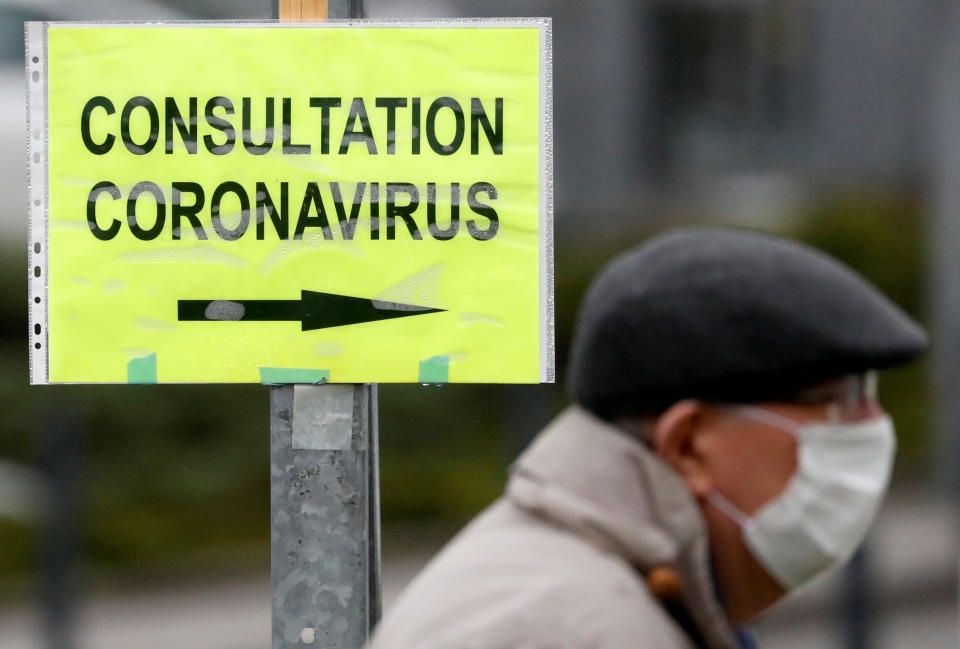As coronavirus spreads, so does dubious advice. Here's what not to do to stay safe.
It’s happening now with the coronavirus, and it’s happened every time a deadly new disease spreads around the world: Charlatans and quick-buck artists, along with the merely gullible or deluded, come out of the woodwork to promote cures whose value ranges from “unproven” to “potentially lethal.”
This is a phenomenon that goes back at least to the 14th century, when the recommended treatments for the Black Death included consuming vinegar, arsenic or mercury or rubbing the skin with onions, herbs or the carcass of a pigeon. Medical science has come a long way since then, but human nature has not, and in the face of a deadly epidemic for which there is no vaccine or drug treatment, people are taking matters into their own hands, with sometimes disastrous results — including the deaths of at least 44 people in Iran who believed that drinking bootleg alcohol could ward off the coronavirus.
To be sure, alcohol, in the form of rubbing alcohol, applied to the hands as a disinfectant, is a medically approved preventive against coronavirus and other infections. But drinking it to cure coronavirus has no known, or even hypothetical, benefits. Even less plausibly, a rumor spread on the internet that cocaine could cure coronavirus, prompting the government of France to promulgate a public health notice to debunk it.
Viruses can be killed by lots of things besides alcohol, including heat, ultraviolet light, bleach and soap, but these things as a rule only work outside the body; drinking boiling water, for instance, would be a bad idea even if it did work. Nevertheless, a number of websites are promoting a compound known as chlorine dioxide as a treatment for coronavirus (along with cancer, HIV, malaria, acne and autism). Chlorine dioxide is an industrial bleach and disinfectant, different from ordinary laundry bleach, which is sodium hypochlorite. A product called Miracle Mineral Solution, or MMS, contains two chemicals that, when mixed together, produce chlorine dioxide, which can then be inhaled or drunk in small amounts — causing risk of, as the Food and Drug Administration warned last year, “nausea, vomiting, diarrhea, and symptoms of severe dehydration.”

“Some product labels claim that vomiting and diarrhea are common after ingesting the product,” the FDA bulletin noted. “They even maintain that such reactions are evidence that the product is working. That claim is false.”
“Colloidal” silver — small particles in a liquid suspension — has some limited medical use as a topical anti-infective, but there is no evidence it is useful against airborne viruses, or can cure anything when taken by mouth. The National Institutes of Health warns that it can have “serious side effects,” including turning skin blue. But, sure enough, it has been hawked as a treatment for the coronavirus, including by televangelist Jim Bakker, who sells a line of supplements on his website and broadcasts to people who either don’t know or don’t care that he was sent to prison for stealing millions of dollars in donations to his broadcast ministry. Last week, New York State Attorney General Letitia James ordered Bakker to stop promoting his Silver Solution product as a cure for the coronavirus.
The coronavirus has also been a boon to the trade in dietary supplements, foods and recipes meant to combat the all-purpose bugaboo of the 21st century, a weakened immune system, including garlic, turmeric, ginger, oregano oil and, yes, chicken soup. It has inspired flights of creativity from marketers for all sorts of products whose relationship to the coronavirus ranges from tenuous to invisible — such as an in-home treatment for migraine headaches, so that sufferers can get relief without having to venture into public to see a doctor, or “a new customizable Immune System Boost vacation package” at a California spa that, for $775 (double occupancy), is supposed to improve immune function by reducing stress.
Diane Umansky, a health reporter and editor at Consumer Reports, was so besieged by these pitches that she resorted to Twitter to try to stanch them:
Dear PR folks, Please stop sending pitches about immune-boosting vacation packages and supplements. We need to focus on what's important right now, putting out useful info on #coronavirus.
— Diane Umansky (@dianu) March 10, 2020
But, as all reporters well know, what looks to most people like a possibly catastrophic pandemic, to others is just a business or personal branding opportunity. And if the spectacle makes you feel queasy, there’s a simple solution that applies to everyone in the country and costs next to nothing: Wash your hands.
_____
Read more from Yahoo News:



